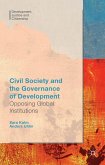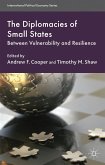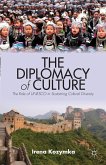This book explores the interplay between formal rules and real world differences, questioning to what extent size-related capacities between states matters for the dynamics and outcomes of negotiations taking place in the United Nations General Assembly, an institution that strongly reflects the one-state, one-vote principle.
"In this meticulously researched book, Diana Panke takes on the central question of whether and how differences in state capacity influence the processes and outcomes of international organizations. Based on an impressive mixed-method exploration of the United Nations General Assembly, the book convincingly establishes the conditions for large and small state influence. The book's conclusions are of general importance for our understanding of the interaction between state power and formal rules in international organizations, the dynamics of multilateral negotiations, and the ability of small states to have an impact in world politics." - Jonas Tallberg, Stockholm University, Sweden








